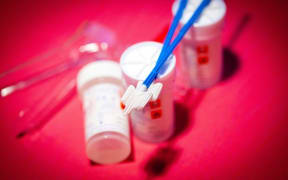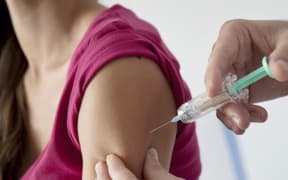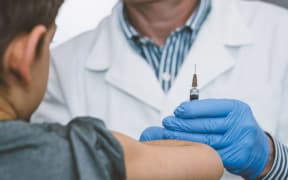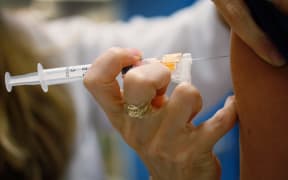The school vaccination rate for human papillomavirus is nearly as high for boys - in the first year of it being offered for them - as it has been for girls, the Ministry of Health says.
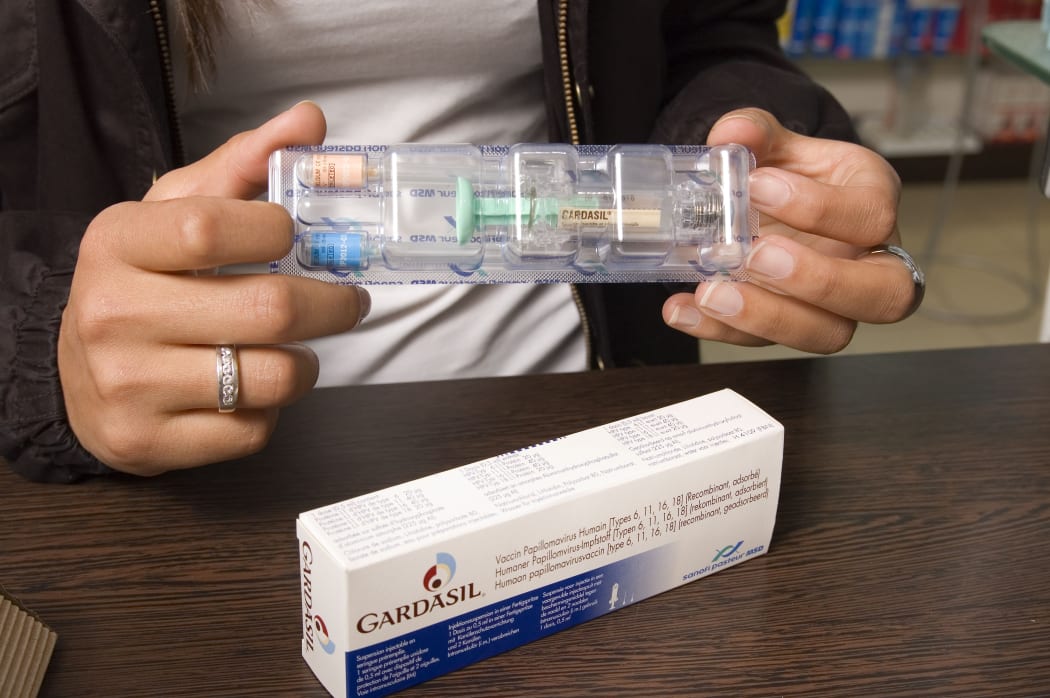
Gardasil has been funded for Year 8 girls in New Zealand since 2008 and offered to boys from January this year. Photo: BELMONTE / BSIP
Drug-buyer Pharmac funded the Gardasil vaccine against human papillomavirus (HPV) for girls and young women in 2008.
After a long campaign, funding was extended to boys and young men aged nine to 26 from January this year.
Much HPV resolves itself, but it can also lead to cervical cancer in women and genital warts, mouth, throat and other cancers in both sexes.
Ministry of Health senior adviser Bonnie Jones said about 64 percent of boys who had the opportunity to be immunised at school had opted to do so, or their parents had on their behalf.
"So that's really positive and it's comparable to the rates that girls are being immunised at."
The ministry said that at the end of August, 69 percent of Year 8 girls had their first dose of the vaccine at school this year.
Sixty-six percent of Year 8 girls last year had both doses of the HPV vaccine.
Ms Jones said a direct comparison could not be drawn between the rates for boys and girls yet because some were being immunised by their GPs.
"We'll be able to know for sure exactly what the comparison is by the end of the 2005 [cohort] school year. For this school year, we can only say it's looking really good.
"When you're talking about this vaccine for boys, it's about protection of cancers that are quite scary - cancers of the mouth and throat, cancers of the genital areas and also genital warts."
She compared that to the threat of cervical cancer many years in the future, and said that may be very hard for a 12- or 13-year-old girl to imagine.
Nurse Karis Harland, who has led school-based HPV vaccination clinics in Upper Hutt, said awareness about HPV and its effect for boys did not appear to be high.
"People were like, 'Why do boys need it?' So making them understand that it's not just girls who can end up with abnormal cells from the HPV, that boys, particularly boys with their throats, can be affected."
Auckland sexual health doctor Min Lo said the vaccine for girls had already led to a reduction in the incidence of genital warts in girls.
She said the Auckland Sexual Health Service detected an 80 percent reduction in 2013, the last time it monitored the issue.
Dr Lo said that has not carried over to boys yet, because of the relatively low number of girls and women immunised, and because boys and men were only now getting the free vaccine.
Auckland University's Immunisation Advisory Centre director Nikki Turner said having two thirds of boys taking up the HPV vaccine in the first year offered at school was "a very impressive result".
"Usually when you introduce a new vaccine there's a relatively slow uptake while people get used to the concept of what it does and how it protects people, so this I think is an excellent result for New Zealand."
Dr Turner said that about two thirds of girls were getting vaccinated.
"We would really like the rates to be higher but we're very pleased to see at least that from the first year the boy coverage is as close to the girls and in some areas we understand that rates for boys are actually higher than girls."
She said social media could play a role in higher rates of uptake for boys in some places.
"We're getting quite a bit of influence from social media in a very positive way in some areas and in other areas you can get some negative feedback from anecdotal stories."
Ministry of Health chief advisor for child and youth health Pat Tuohy said most of the boys being vaccinated were getting it done at school.
He said the 64 percent rate was a pleasant surprise.
"We did think it would be slower but as I said, it's the same parents, and I think ... they're getting it for the girls, and it's not much of an intellectual move to identify that yes, boys do get HPV-related cancers as well and it's important that we protect them."

